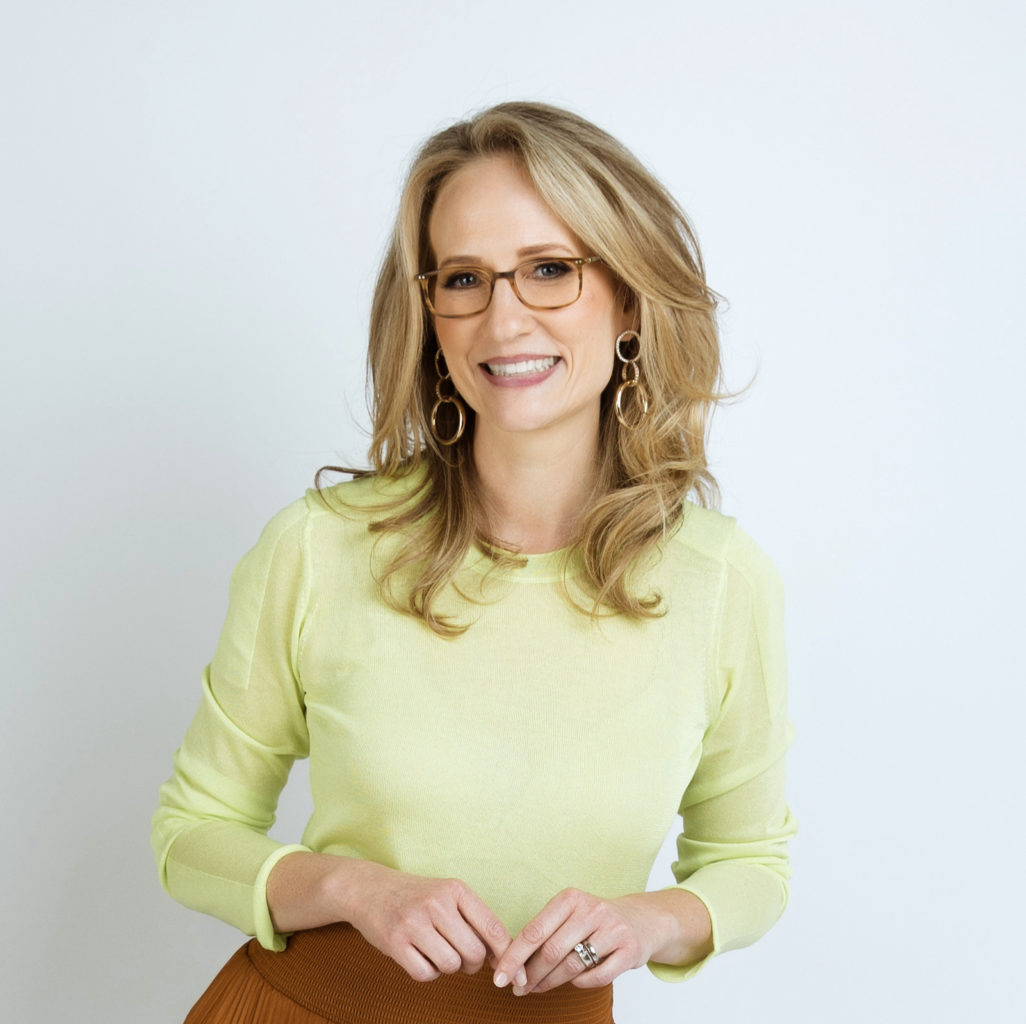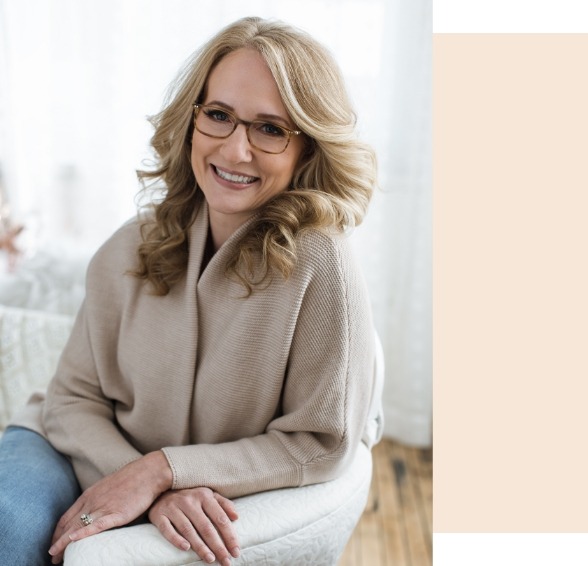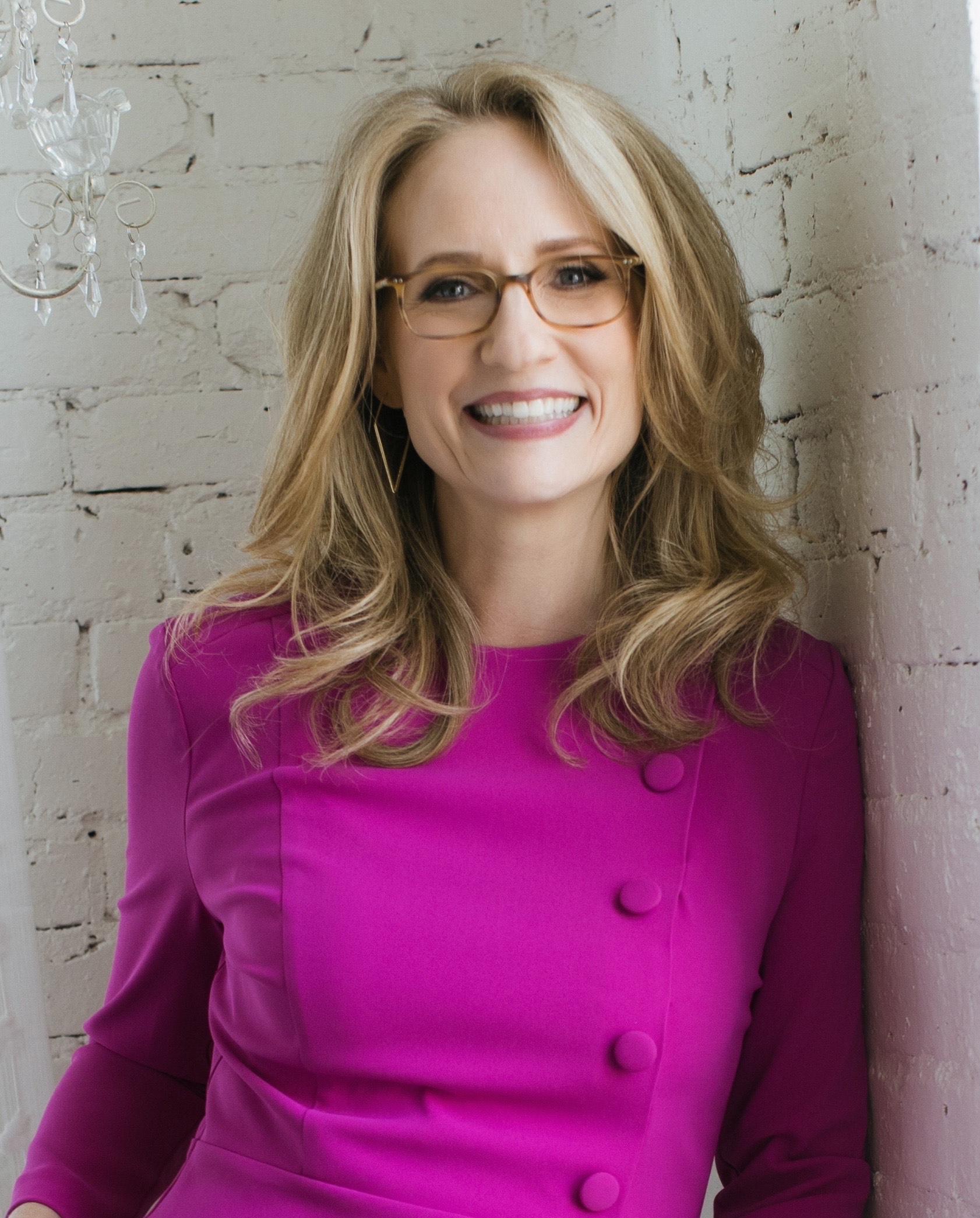Ready to Collaborate?
If you’re building something meaningful and want the strategic edge of deep clinical expertise, consumer insight, and proven brand-building experience—I’d love to connect.
America’s Most Trusted Child Psychologist


I’m a licensed clinical psychologist, nutritionist, educator, entrepreneur, and former C-suite executive with nearly three decades of experience helping people improve their health through science-backed, human-centered strategies. Today, I partner with founders and companies to build products and brands that resonate—grounded in real clinical insight and delivered with the emotional intelligence that inspires action.
Throughout my career, I’ve worked at the intersection of science, strategy, and real-world impact. My experience spans clinical practice, leading a multi-disciplinary health clinic, executive leadership in supplement brand development and manufacturing, and advisory roles in scientific and government affairs. I’ve also formulated supplements, contributed to published research, authored a bestselling book, taught professional audiences, and served as a trusted expert in national media.
Now, I serve as a Clinical, Scientific, and Strategic Advisor to founders and companies building innovative products and platforms in the wellness space. My work supports everything from product development and education strategy to media engagement, team growth, and long-term brand positioning.
Whether I’m advising behind the scenes or representing your brand as an external expert, I bring depth, credibility, and real value to your business.
I support brands at every stage of development with customized advisory and consulting services that draw on a deep well of clinical, scientific, and operational experience. Areas of expertise include:

My work spans multiple domains and business models, including:
This cross-sector experience allows me to understand and advise on the full lifecycle of a health or wellness brand—from clinical credibility to operational execution to consumer trust.
I collaborate with purpose-driven founders, executives, and teams who are building or scaling the next generation of health-focused products, platforms, or services. Whether you’re launching a supplement line, expanding a digital health offering, or integrating evidence-based strategies into your wellness brand, I can help. Clients include:


In today’s fiercely competitive market, what sets successful brands apart is their ability to combine real science, clear messaging, and authentic connection. I bring a rare combination of clinical training, research literacy, business leadership, and communication expertise—helping brands earn trust, drive revenue, and make a bigger impact.
I bring is more than credentials—it’s firsthand leadership experience across every side of the industry:
This unique mix allows me to understand the science, the people, and the business—so I can help you make smart, strategic decisions that move the needle.
If you’re building something meaningful and want the strategic edge of deep clinical expertise, consumer insight, and proven brand-building experience—I’d love to connect.
Download my free 5 Keys to Better Behavior Naturally and get information and strategies you need to start improving your child’s attention, anxiety, mood and behavior right away.
We will only send you awesome stuff
This Privacy Policy governs the manner in which Beurkens Autism Consulting, Inc. d/b/a Horizons Developmental Resource Center collects, uses, maintains and discloses information collected from users (each, a “User”) of the www.DrBeurkens.com website (“Site”). This privacy policy applies to the Site and all products and services offered by Horizons Developmental Resource Center.
Please read this Privacy Policy carefully. By visiting and using the Site, you agree that your use of our Site, and any dispute over privacy, is governed by this Privacy Policy. Because the Web is an evolving medium, we may need to change our Privacy Policy at some point in the future, in which case we’ll post the changes to this Privacy Policy on this website and update the Effective Date of the policy to reflect the date of the changes. By continuing to use the Site after we post any such changes, you accept the Privacy Policy as modified.
Personal identification information
We may collect personal identification information from Users in a variety of ways, including, but not limited to, when Users visit our site, register on the site, place an order, subscribe to the newsletter, respond to a survey, fill out a form, and in connection with other activities, services, features or resources we make available on our Site. Users may be asked for, as appropriate, name, email address, mailing address, phone number, credit card information. Users may, however, visit our Site anonymously. We will collect personal identification information from Users only if they voluntarily submit such information to us. Users can always refuse to supply personally identification information, except that it may prevent them from engaging in certain Site related activities.
Non-personal identification information
We may collect non-personal identification information about Users whenever they interact with our Site. Non-personal identification information may include the browser name, the type of computer and technical information about Users means of connection to our Site, such as the operating system and the Internet service providers utilized and other similar information.
Web browser cookies
Our Site may use “cookies” to enhance User experience. User’s web browser places cookies on their hard drive for record-keeping purposes and sometimes to track information about them. User may choose to set their web browser to refuse cookies, or to alert you when cookies are being sent. If they do so, note that some parts of the Site may not function properly.
How we use collected information
Horizons Developmental Resource Center may collect and use Users personal information for the following purposes:
How we protect your information
We adopt appropriate data collection, storage and processing practices and security measures to protect against unauthorized access, alteration, disclosure or destruction of your personal information, username, password, transaction information and data stored on our Site.
Sensitive and private data exchange between the Site and its Users happens over a SSL secured communication channel and is encrypted and protected with digital signatures.
Sharing your personal information
We do not sell, trade, or rent Users personal identification information to others. We may share generic aggregated demographic information not linked to any personal identification information regarding visitors and users with our business partners, trusted affiliates and advertisers for the purposes outlined above.We may use third party service providers to help us operate our business and the Site or administer activities on our behalf, such as sending out newsletters or surveys. We may share your information with these third parties for those limited purposes provided that you have given us your permission.
Please keep in mind that whenever you voluntarily make your personal information available for viewing by third parties online – for example on message boards, web logs, through email, or in chat areas – that information can be seen, collected and used by others besides us. We cannot be responsible for any unauthorized third-party use of such information.
Some of our third-party advertisers and ad servers that place and present advertising on the Site also may collect information from you via cookies, web beacons or similar technologies. These third-party advertisers and ad servers may use the information they collect to help present their advertisements, to help measure and research the advertisements’ effectiveness, or for other purposes. The use and collection of your information by these third-party advertisers and ad servers is governed by the relevant third-party’s privacy policy and is not covered by our Privacy Policy. Indeed, the privacy policies of these third-party advertisers and ad servers may be different from ours. If you have any concerns about a third party’s use of cookies or web beacons or use of your information, you should visit that party’s website and review its privacy policy.
Google Analytics
We also use Google Analytics Advertiser Features to optimize our business. Advertiser features include:
By enabling these Google Analytics Display features, we are required to notify our visitors by disclosing the use of these features and that we and third-party vendors use first-party cookies (such as the Google Analytics cookie) or other first-party identifiers, and third-party cookies (such as the DoubleClick cookie) or other third-party identifiers together to gather data about your activities on our Site. Among other uses, this allows us to contact you if you begin to fill out our check-out form but abandon it before completion with an email reminding you to complete your order. The “Remarketing” feature allows us to reach people who previously visited our Site, and match the right audience with the right advertising message.
You can opt out of Google’s use of cookies by visiting Google’s ad settings and/or you may opt out of a third-party vendor’s use of cookies by visiting the Network Advertising Initiative opt-out page.
As advertisers on Facebook and through our Facebook page, we, (not Facebook) may collect content or information from a Facebook user and such information may be used in the same manner specified in this Privacy Policy. You consent to our collection of such information.
We abide by Facebook’s Data Use Restrictions.
Children’s Privacy Statement
This children’s privacy statement explains our practices with respect to the online collection and use of personal information from children under the age of thirteen, and provides important information regarding their rights under federal law with respect to such information.
Changes to this privacy policy
Horizons Developmental Resource Center has the discretion to update this privacy policy at any time. When we do, we will revise the updated date at the bottom of this page. We encourage Users to frequently check this page for any changes to stay informed about how we are helping to protect the personal information we collect. You acknowledge and agree that it is your responsibility to review this privacy policy periodically and become aware of modifications.
Your acceptance of these terms
By using this Site, you signify your acceptance of this policy. If you do not agree to this policy, please do not use our Site. Your continued use of the Site following the posting of changes to this policy will be deemed your acceptance of those changes.
Contacting us
If you have any questions about this Privacy Policy, the practices of this site, or your dealings with this site, please contact us at:
Horizons Developmental Resource Center
www.DrBeurkens.com
3120 68th Street SE
Caledonia, MI 49316
616-698-0306
info(at)drbeurkens.com
This document was last updated on May 30, 2016
Integer posuere erat a ante venenatis dapibus posuere velit aliquet. Maecenas faucibus mollis interdum. Etiam porta sem malesuada magna mollis euismod. Donec ullamcorper nulla non metus auctor fringilla.
We will only send you awesome stuff

Read the first chapter to see if you find it helpful. It’s my free gift to you!